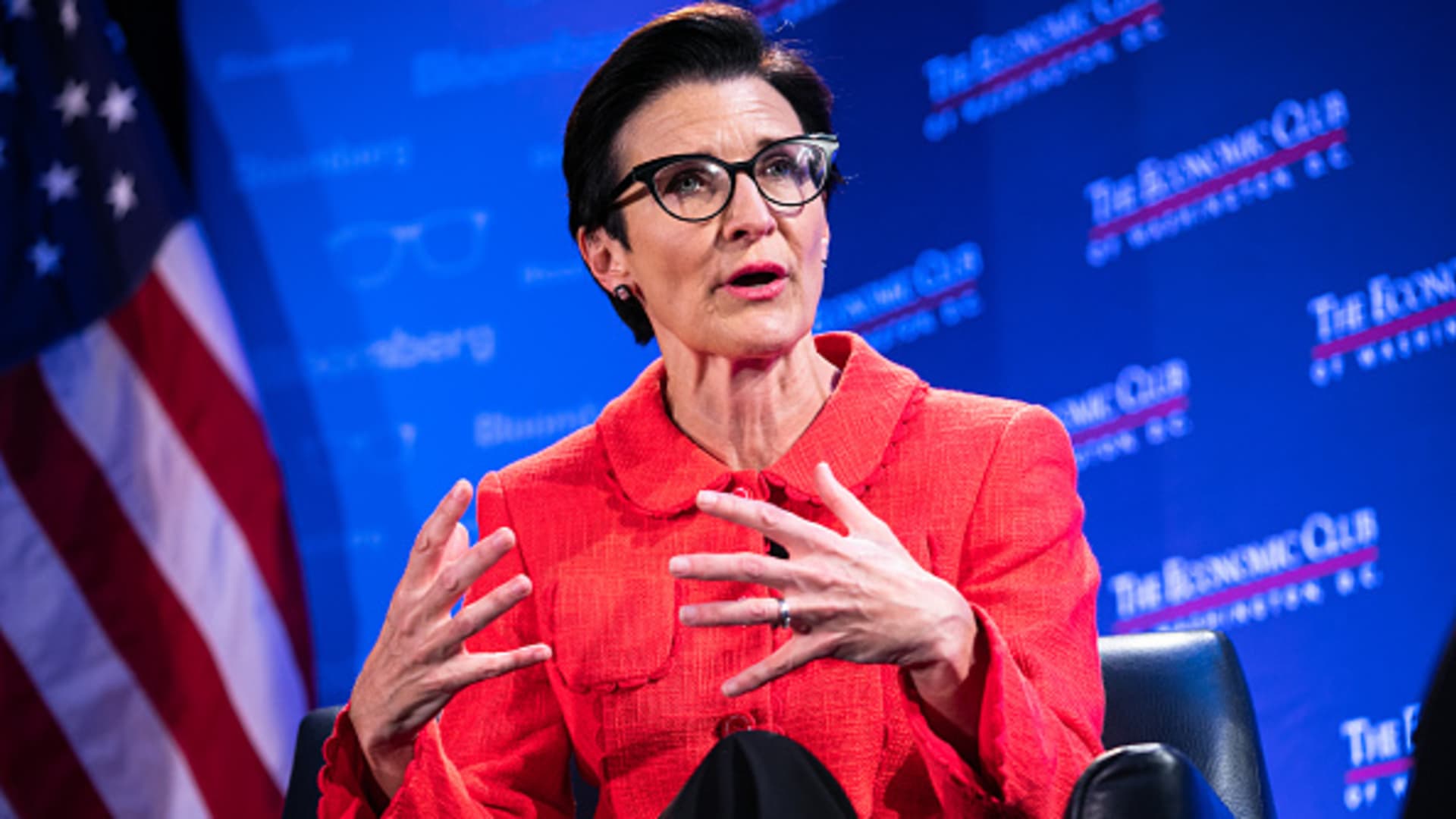Lower-end consumers have shifted buying patterns to save money as their bank accounts dwindle in size, according to Citigroup CEO Jane Fraser.
The third-largest U.S. bank by assets has been monitoring its credit card customers for signs of distress, Fraser told CNBC’s Sara Eisen on Friday in an interview.
“We are paying attention to the lower FICO consumer, where there are cracks” forming, Fraser said, referring to the widely used credit-scoring system from Fair Isaac Corp. “I think some of the excess savings from the Covid years are getting close to depletion.”
The U.S. government injected trillions of dollars into households and businesses during the pandemic to avert disaster, money that has helped keep the economy humming for longer than many forecasters expected. At the same time, the Federal Reserve’s most aggressive interest rate hiking cycle in four decades has made credit card, mortgage and auto debt more expensive, and late payments and defaults have been climbing.
When asked what other CEOs are telling her about the state of the economy, Fraser said that besides comments on artificial intelligence and labor tightness, corporate leaders have told her that demand is softening, she said.
“Particularly [for] the bottom end of the consumer, that’s the one that we’re starting to see cracks, you’re seeing some shift in the buying patterns to lower categories in the spend,” Fraser said. “It’s a resilient consumer, but it’s a softer one.”
Softening demand may help the Fed in its battle with inflation, the CEO noted. While employment and gross domestic product figures suggest the economy will achieve a “soft landing,” if it does tip into recession, it will likely be a “manageable” one, Fraser said.
In the wide-ranging interview, Citi’s CEO also said her latest overhaul of the bank was a move away from the “financial supermarket” model of the past into a more streamlined operation.
The scope of job cuts and expense savings triggered by the reorganization will be disclosed with fourth quarter-earnings, she said.
